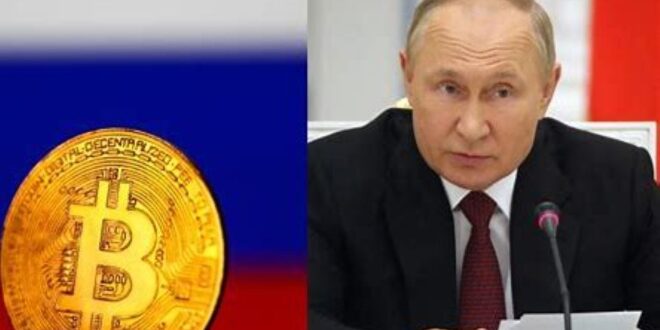Russian authorities have arrested a man accused of using cryptocurrency to finance drone purchases for militant groups opposing President Vladimir Putin, according to a statement from the Federal Security Service (FSB). The case underscores growing concerns over the use of digital assets in conflict financing and anti-government movements.
Crypto and the Alleged Drone Operation
The FSB alleges that the suspect, whose identity has not yet been disclosed, sent cryptocurrency to militant groups operating against the Russian government. These groups, reportedly linked to anti-Putin factions, allegedly used the funds to acquire drones and other military equipment.
According to Russian authorities, the suspect used anonymous crypto transactions to evade detection and funnel money into channels supporting the militants. The FSB claims that intelligence operations traced the transactions back to the individual, leading to his arrest.
Growing Scrutiny on Crypto in Conflict Zones
This case highlights the increasing use of cryptocurrencies in geopolitical conflicts. While digital assets provide a decentralized financial system, they have also been leveraged by militant organizations, dissident groups, and sanctioned entities to move funds without government oversight.
Russian authorities have previously cracked down on what they claim are illicit uses of crypto, with heightened surveillance on financial transactions that could support opposition groups. Meanwhile, the West has accused Russian-linked entities of using crypto to bypass economic sanctions imposed after the invasion of Ukraine.
Legal and Political Implications
The suspect faces serious charges, which could include financing terrorism or aiding unlawful organizations. If convicted, he could face lengthy prison time under Russia’s strict anti-terrorism laws.
Politically, the case could serve as further justification for the Kremlin’s tightening grip on digital assets, reinforcing narratives that crypto is a tool for destabilization. Russia has been increasing its regulatory efforts on digital assets, with new laws requiring stricter oversight of crypto exchanges and wallet services.
The international community will likely watch closely how this case unfolds, as it raises broader concerns about the intersection of crypto, warfare, and financial regulations. As governments worldwide seek more control over digital transactions, cases like this could influence future crypto policies and enforcement strategies.
Would you like to include expert opinions or recent geopolitical reactions to the case?
 Business Sandesh Indian Newspaper | Articles | Opinion Pieces | Research Studies | Findings & News | Sandesh News
Business Sandesh Indian Newspaper | Articles | Opinion Pieces | Research Studies | Findings & News | Sandesh News



